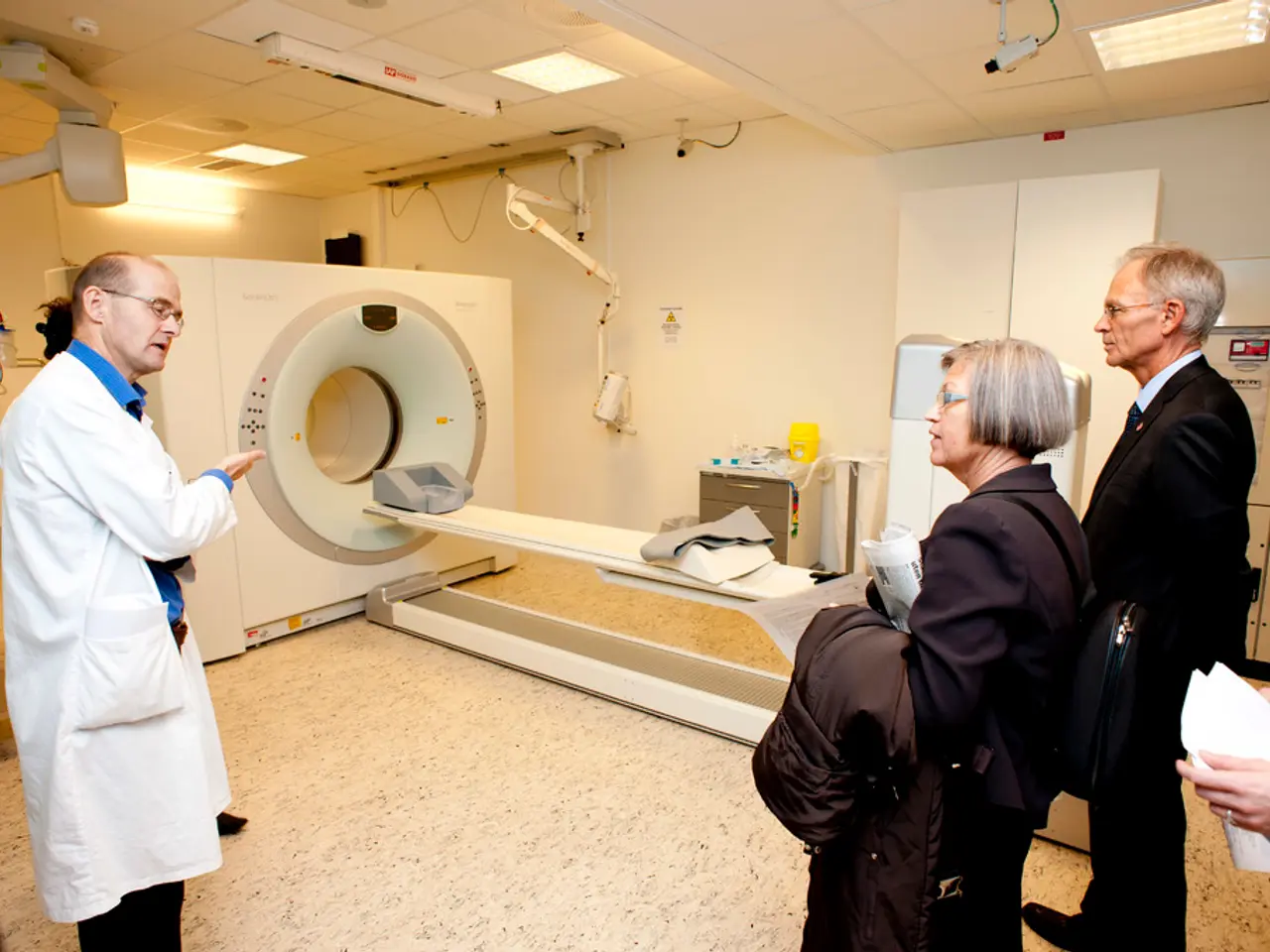Cancer of the kidney: Signs, remedies, and stages
Kidney cancer, also known as renal cell carcinoma (RCC), is a type of cancer that begins in the kidneys. While the exact causes remain unclear, risk factors include smoking, obesity, high blood pressure, chronic renal failure, occupational exposure to chemicals, family history of renal cancer, and advanced age.
When it comes to treatment, the options vary depending on the stage and type of cancer, as well as the patient’s overall health. Here's a breakdown of the most common treatments used in clinical practice.
## Surgical Treatments
For early-stage kidney cancer, surgical removal of the tumor and a small margin of surrounding tissue, known as a partial nephrectomy, is often performed to preserve as much kidney function as possible. In later stages, complete removal of the affected kidney, or a complete nephrectomy, may be necessary. Laparoscopic (minimally invasive) surgery, which uses small incisions and specialized instruments, including robotic assistance, is preferred in early-stage disease to reduce recovery time and complications.
## Non-Surgical and Localized Treatments
For patients who cannot undergo surgery due to health reasons or the location of the tumor, thermal ablation—using heat (radiofrequency ablation) or cold (cryoablation) to destroy cancerous tissue—is an option. Radiation therapy, high-energy radiation directed at the tumor to kill cancer cells or shrink the tumor, is less commonly used for kidney cancer but may be considered for certain cases or symptom palliation. Focused ultrasound therapy, a novel, noninvasive technique where ultrasound energy precisely targets and destroys tumor tissue without damaging surrounding organs, is still under evaluation but offers a promising alternative for select patients.
## Systemic Therapies
Immunotherapy, which uses drugs such as nivolumab, pembrolizumab, and ipilimumab to stimulate the patient’s immune system to attack cancer cells, has significantly improved survival rates in advanced kidney cancer and can lead to long-term remissions. Targeted therapy, which involves drugs that specifically target molecular pathways involved in cancer growth, such as VEGF inhibitors, have improved outcomes compared to older treatments. Combining immunotherapy and targeted therapy has shown even better results in advanced kidney cancer, with improved survival rates compared to either treatment alone.
## Other Considerations
Chemotherapy, while rarely used for most kidney cancers, may be considered in certain subtypes or when other treatments are not effective. Participation in clinical trials may be offered to access new and experimental therapies, especially for advanced or treatment-resistant cancers.
The choice of treatment is individualized and often involves a multidisciplinary team including urologists, oncologists, nephrologists, and other specialists. Early-stage kidney cancer is most often treated with surgery, while advanced or metastatic disease may require a combination of systemic therapies and other approaches.
The overall survival rate at 5 years following diagnosis for all stages of kidney cancer is 76%. The outlook for kidney cancer is generally improved by getting an early diagnosis. Supportive care, or palliative care, can help people with kidney cancer and their families deal with practical, emotional, and physical challenges that come with the diagnosis and treatment process.
In conclusion, understanding the various treatment options available for kidney cancer is essential for patients and their families. Consulting with a healthcare professional is crucial in making informed decisions about the best course of treatment.
- For early-stage kidney cancer, a partial nephrectomy, a surgical removal of the tumor and surrounding tissue, is often performed to preserve kidney function.
- In later stages, a complete removal of the affected kidney, or a complete nephrectomy, may be necessary.
- Thermal ablation, using heat or cold to destroy cancerous tissue, is an option for patients who cannot undergo surgery or have tumors in specific locations.
- Immunotherapy drugs, such as nivolumab, pembrolizumab, and ipilimumab, have significantly improved survival rates in advanced kidney cancer.
- Participation in clinical trials can provide access to new and experimental therapies for advanced or treatment-resistant kidney cancers.
- Early diagnosis of kidney cancer generally improves the outlook, with a 5-year survival rate of 76%, but supportive care is crucial in helping patients and their families deal with the practical, emotional, and physical challenges of the diagnosis and treatment process.




